

Profiles of Prevention Study Participants
Below are five women who participated in the first Breast Cancer Prevention Trial (BCPT), the Study of Tamoxifen or Raloxifene (STAR), or in both studies. Here they share their reasons for participating in these studies and why clinical trials are so important to them.
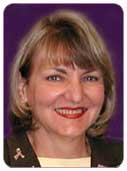 |
Grace del Castillo, Miami, Florida Grace became interested in STAR the minute she read an article about it in a local newspaper. Her younger sister had recently been diagnosed with breast cancer and had just completed her chemotherapy. Having seen the physical as well as the emotional effects of this horrible disease, she knows the important role that research plays in the fight to eliminate breast cancer. She feels that STAR has given her the opportunity of having an active part in the prevention of breast cancer, and she is very interested in spreading the word about STAR, especially among Hispanic women. |
|
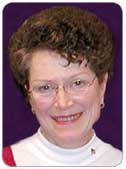 |
Nancy Gent, St. Louis, Missouri "[Nancy] entered STAR based upon her primary goal in life... to help others," says her STAR coordinator, Marian Wuest. Breast cancer had developed in both her mother and one of her sisters, which increased her desire to contribute to the research that might finally defeat this disease that devastates so many families. As a retired medical records administrator, "she passionately believes that medical science cannot progress without [clinical trials]." Before she entered the STAR trial, she volunteered for and participated in many other clinical trials, both at the University of California at San Diego and at the Washington School of Medicine in St. Louis, as well as at several medical research facilities in the St. Louis area. |
|
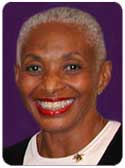
|
Arlene Stevens, Silver Spring, Maryland Arlene, a native New Yorker, lived on St. Croix in the Virgin Islands for 23 years, where she knew many cancer victims and lost many friends. She has atypical hyperplasia, which motivates her to make a special effort to keep informed about health and breast cancer issues. Before joining STAR, she was reluctant to give up her hormonal therapy, but then, she says, "that became secondary to being involved, doing something that just might ensure my daughter, daughter-in-law and two granddaughters a future free of breast cancer." | |
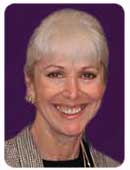
|
Jackie Thomas, Issaquah, Washington Hello! My name is Jackie Thomas. My mother and her sister both had breast cancer. I began yearly mammograms at age 35. At 37, I had my first cancer scare. I felt so powerless and ignorant, I vowed to learn all I could about breast cancer. I was lucky then, but wanted to be prepared for "next time." I was actively looking for an opportunity to be involved in the fight against breast cancer when the Breast Cancer Prevention Trial came along. I supported that trial in every way I could. It was a tremendously positive and empowering experience. Now eligible for the STAR trial, I am so pleased to be participating in the search for answers and for more options for women. | |
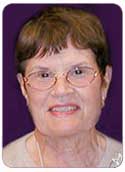
|
Lonnie Williams, Oklahoma City, Oklahoma I was one of the first women to sign up for STAR, because my daughter, 35, was diagnosed with breast cancer while she was still in her medical residency and had a 5-month old baby at home. Until then, I hadnít been aware of how many young women got breast cancer and how devastating it was to the family. My daughter died in 1996 at the age of 42 of metastatic breast cancer. That is much too young to die. I was even more deeply committed to STAR after her death. It is so important that we do something to prevent this from happening to our young women. I still have one daughter and one granddaughter about whom I am very concerned. If some way can be found to prevent this disease, I want to be part of it. |
This Web site is a product of the
National Surgical Adjuvant Breast and Bowel
Project (NSABP).